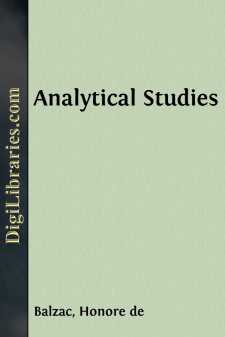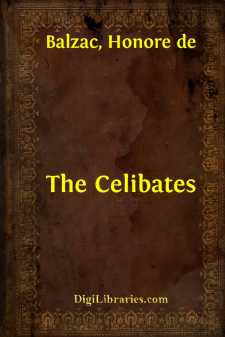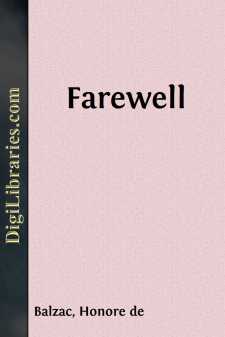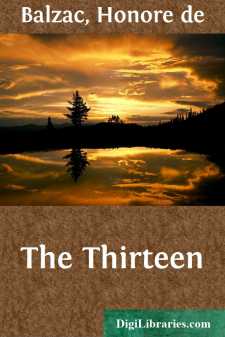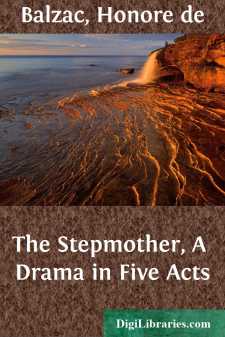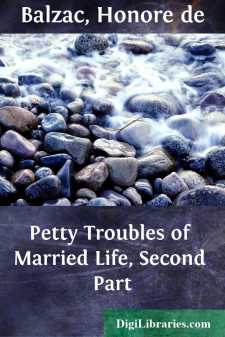Categories
- Antiques & Collectibles 13
- Architecture 36
- Art 48
- Bibles 22
- Biography & Autobiography 813
- Body, Mind & Spirit 142
- Business & Economics 28
- Children's Books 15
- Children's Fiction 12
- Computers 4
- Cooking 94
- Crafts & Hobbies 4
- Drama 346
- Education 46
- Family & Relationships 57
- Fiction 11829
- Games 19
- Gardening 17
- Health & Fitness 34
- History 1377
- House & Home 1
- Humor 147
- Juvenile Fiction 1873
- Juvenile Nonfiction 202
- Language Arts & Disciplines 88
- Law 16
- Literary Collections 686
- Literary Criticism 179
- Mathematics 13
- Medical 41
- Music 40
- Nature 179
- Non-Classifiable 1768
- Performing Arts 7
- Periodicals 1453
- Philosophy 64
- Photography 2
- Poetry 896
- Political Science 203
- Psychology 42
- Reference 154
- Religion 513
- Science 126
- Self-Help 84
- Social Science 81
- Sports & Recreation 34
- Study Aids 3
- Technology & Engineering 59
- Transportation 23
- Travel 463
- True Crime 29
Honore de Balzac
Honoré de Balzac was a prominent French novelist and playwright known for his extensive and detailed depiction of society in early 19th-century France. He is best known for "La Comédie Humaine," a series of over 90 interlinked novels and stories that explore a wide range of characters and social classes. Balzac's keen observations and complex characters significantly influenced the development of realism in literature.
Author's Books:
Sort by:
by:
Honore de Balzac
INTRODUCTION The two Analytical Studies, Physiology of Marriage and Petty Troubles of Married Life, belong quite apart from the action of the Comedie Humaine, and can only be included therein by virtue of a special dispensation on the part of their author, who made for them an eighth division therein, thus giving them a local habitation and a name. Although they come far down in the list of titles,...
more...
by:
Honore de Balzac
Les Celibataires, the longest number of the original Comedie Humaine under a single title, next to Illusions perdues, is not, like that book, connected by any unity of story. Indeed, the general bond of union is pretty weak; and though it is quite true that bachelors and old maids are the heroes and heroines of all three, it would be rather hard to establish any other bond of connection, and it is...
more...
by:
Honore de Balzac
FAREWELL "Come, Deputy of the Centre, come along! We shall have to mend our pace if we mean to sit down to dinner when every one else does, and that's a fact! Hurry up! Jump, Marquis! That's it! Well done! You are bounding over the furrows just like a stag!" These words were uttered by a sportsman seated much at his ease on the outskirts of the Foret de l'Isle-Adam; he had just...
more...
by:
Honore de Balzac
INTRODUCTION The Histoire des Treize consists—or rather is built up—of three stories: Ferragus or the Rue Soly, La Duchesse de Langeais or Ne touchez-paz a la hache, and La Fille aux Yeux d'Or. To tell the truth, there is more power than taste throughout the Histoire des Treize, and perhaps not very much less unreality than power. Balzac is very much better than Eugene Sue, though Eugene Sue...
more...
by:
Honore de Balzac
ACT I SCENE FIRST (A richly decorated drawing-room; on the walls are portraits of Napoleon I. and his son. The entry is by a large double glass door, which opens on a roofed veranda and leads by a short stairway to a park. The door of Pauline's apartments are on the right; those of the General and his wife are on the left. On the left side of the central doorway is a table, and on the right is a...
more...
by:
Honore de Balzac
PREFACE This little Parisian silhouette in prose was written by Balzac to be the first chapter of a new series of the "Comedie Humaine" that he was preparing while the first was finishing. Balzac was never tired. He said that the men who were tired were those who rested and tried to work afterwards. "A Street of Paris and its Inhabitant" was in its author's mind when Hetzel,...
more...
by:
Honore de Balzac
Had the author of the following play written it merely for the purpose of winning for it the universal praise which the journals have lavished upon his romances, and which perhaps transcended their merits, The Resources of Quinola would still have been an excellent literary speculation; but, when he sees himself the object of so much praise and so much condemnation, he has come to the conclusion that...
more...
by:
Honore de Balzac
THE UNKINDEST CUT OF ALL. Is it a petty or a profound trouble? I knew not; it is profound for your sons-in-law or daughters-in-law, but exceedingly petty for you. "Petty! You must be joking; why, a child costs terribly dear!" exclaims a ten-times-too-happy husband, at the baptism of his eleventh, called the little last newcomer,—a phrase with which women beguile their families. "What...
more...
by:
Honore de Balzac
If, reader, you have grasped the intent of this book,—and infinite honor is done you by the supposition: the profoundest author does not always comprehend, I may say never comprehends, the different meanings of his book, nor its bearing, nor the good nor the harm it may do—if, then, you have bestowed some attention upon these little scenes of married life, you have perhaps noticed their color—...
more...
by:
Honore de Balzac
THE UNKINDEST CUT OF ALL. Is it a petty or a profound trouble? I knew not; it is profound for your sons-in-law or daughters-in-law, but exceedingly petty for you. "Petty! You must be joking; why, a child costs terribly dear!" exclaims a ten-times-too-happy husband, at the baptism of his eleventh, called the little last newcomer,—a phrase with which women beguile their families. "What...
more...


